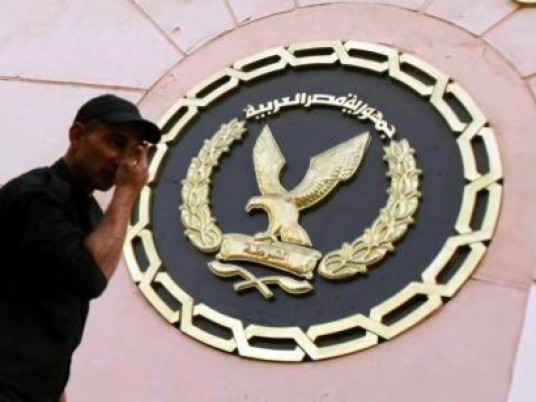A United Nations freelance consultant was fatally shot in the head while driving through an upscale Cairo neighborhood on Sunday, Egyptian security officials said, as concerns persist over a security vacuum blamed on lax policing since the uprising that overthrew President Hosni Mubarak last year.
The Egyptian capital's wealthier districts have seen a rise in crime over the last year, but while reports of purse-snatchings, car-breakings, and similar petty crimes are common, reports of fatal shootings in these neighborhoods have been rare.
A security official said the 41-year-old Egyptian woman, named Nermeen Gomaa Khalil, was shot in broad daylight while driving her SUV on one of Cairo's busiest streets in the neighborhood of Mohandiseen. He spoke on condition of anonymity because he was not authorized to speak to reporters.
Khawla Mattar, director of the UN Information Center in Egypt, said the victim was a consultant with a women's fund at the United Nations in Cairo and also worked at a medical lab.
The crime wave is seen not just as a sign of incompetence on the part of the Interior Ministry, which controls the police, but part of the larger overall failure by the military council to steer the country through its transitional period.
During the 18-day revolt that led to Mubarak's ouster, over 23,000 prisoners were either let out or broke out of prison during a collapse of the police force. Police say that most of the crimes are being committed by some 5,000 escapees who have yet to be caught.
According to an Egyptian intelligence officer, who wished not to be named due to the sensitivity of the subject, police morale in Egypt is low. He said many police officers believe that revolutionary calls for greater rights for citizens has crippled their ability to make arrests and pursue cases.
But members of Egypt's activist groups say that the police may be deliberately failing to secure the streets. According to former officers who are advocating for police reform, many in the Interior Ministry want to punish Egyptians for attacks on Mubarak's widely-hated police force during the 2011 uprising.
Deadly soccer violence that killed over 70 people in the city of Port Said on 1 February focused public anger on the ministry. For decades under the Mubarak regime, the Interior Ministry has been associated with torture and corruption. Police were blamed by the media, activists and lawmakers for the soccer stadium deaths — whether from a lack of control or, as some alleged, on purpose.
The police failure to prevent the soccer violence was the bloodiest example of a series of security lapses since the uprising.
Upscale Cairo districts and tribal areas like the Sinai peninsula may be particularly hard-hit, but there have also been frequent reports of crimes, or of citizens responding to crime by taking the law in their own hands in the countryside.
In the northern Sharqiya province, police said, muggers killed a man last week as they attempted to steal his vehicle. The victim's relatives tracked down one of the muggers who killed him and lynched him in the middle of the town of Abu-Hammad. They then burnt his body while it hung on the light pole.
Another vigilante incident took place last week in the province of Mansoura, where relatives of a victim took justice into their own hands and lynched two suspected killers.
In many of the recent high-profile crimes, people have not been killed, though.
Three South Korean woman, and separately two American women, were abducted and held by Bedouin tribesmen seeking to pressure the government to release their detained relatives.
All were released unharmed after promises by security officials to look into their demands.




